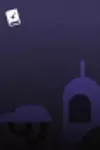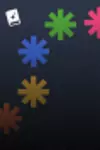
Matt
“So why didn't you marry a Palestinian, then?”I had no ready answer to that question, but I found myself telling her that I hadn't wanted to replicate my parents' experience. I didn't want my household to turn into another Palestinian saga. We slept and woke to news of Palestine; we ate it, drank it, debated it, swore at it.
While pets and wildlife have legal protection, even if they don't always experience it, the situation for threshold animals is precarious as soon as they come under human scrutiny. [...] They can only be saved by a positive outcome of the cost-benefit analysis which Homo oeconomicus tends to subject everything to. If they are not perceived as cute or beautiful, interesting or at least useful for some ecosystem, they are considered undesirable and superfluous, and it is only a small step to their elimination.
This definitely has some very cool elements. The art is often gorgeous and comes with some great visual ideas that really make the autumnal aesthetic pop out. The story is quite decent as well with some charming character.
But it is also a bit basic and ending in a rather obvious way. I think this could have needed a couple more chapters to flesh out the mystery and some of the characters a bit more, or go into a completely different direction altogether near the end.
Most Israelis think these are ‘wild' figs or ‘wild' almonds, as they see them in full bloom, towards the end of the winter, heralding the beauty of spring. But these fruit trees were planted and nurtured by human hands. Wherever almond and fig trees, olive groves or clusters of cactuses are found, there once stood a Palestinian village: still blossoming afresh each year, these trees are all that remain.
It was a long journey to the rehabilitation of this female rage, but it is slowly finding its place and sheds a centuries-old taboo: It is written about, its roots are being identified, it gets compared to the male rage, in short: It exists. We have to cherish this place and kindle this rage's flame inside of us. A rage that demands justice, that calls out for redemption, that keeps us from falling into resignation. It is our rage that holds men liable for their actions and gives wings to our revolutions.
I Hate Men
I never heard of this little Max character until a friend told me about it recently, so I had to check it out. It's a cute collection of short, wordless comics of the titular groundhog going through some shenanigans has he eats, smokes, and indulges in other hobbies of his.
Some nice and simple entertainment.
Do you want to get in the bathtub with me?
[Quote translated from German.]
I recently saw this ad in a German literature magazine about these books specifically made to read in the bathtub. They're short stories that are supposed to take you around 15 minutes to read and they're printed on these puffy, floating little plastic booklets. They honestly remind me a lot of those sensory books for toddlers and I believe children's toys is actually where they took the idea from. Except this time they are explicitly for adults with crime and romance stories.
It definitely sounds like a gimmick product more than anything. As someone who takes his physical books as well as his ebook device in the bathtub all the time, it seems a bit extra funny. I haven't dropped a book in the water yet but even so, at least my ebook device is actually waterproof. lol
(Hell, I'm even writing this review from the bathtub via my phone right now.)
Well, anyway... curiosity got over me and I bought one of these little bathtub books for like six bucks and a few days later, I read it as intended: In the tub with a bubble bath.
I picked a crime story which didn't sound too bad. The story revolves around fraud at a rubber ducky race in a park.
Honestly not a terrible premise for a fun short story, especially to read while taking a bath, but the writing is pretty dang flat. None of the characters are very interesting and the story progresssion doesn't really offer any engaging intrigue or surprises. The villain's motivation is eventually revealed in a very anticlimactic way. This definitely could have been written in a more entertaining way.
I also noticed that there are frequent namedrops of specific sights and places of this real German town the story is placed in, without any purpose for the plot. It was no surprise when I looked up the author afterwards and noticed that they wrote a bunch of regional crime novels before.
I'm sure those things are neat if that's what you're looking for and you actually know the place. But here it just felt like meaningless filler lines, mentioning random buildings or streets for no purpose.
Well, it's a pretty mediocre read. Not terrible but also not anything that needs to be read. It doesn't have anything to really remember it by. It's just one of those airy, fleeting stories like the bubbles in bathwater.
Oh, also: The cover says it should take the reader 15 minutes to read. I finished it in 10. 😎
When the gods created man they allotted to him death, but life they retained in their own keeping. As for you, Gilgamesh, fill your belly with good things; day and night, night and day, dance and be merry, feast and rejoice. Let your clothes be fresh, bathe yourself in water, cherish the little child that holds your hand, and make your wife happy in your embrace; for this too is the lot of man.
The Epic of Gilgamesh

















































